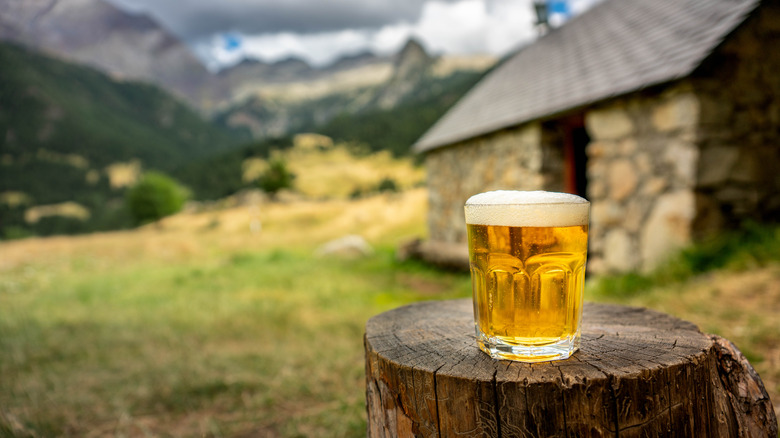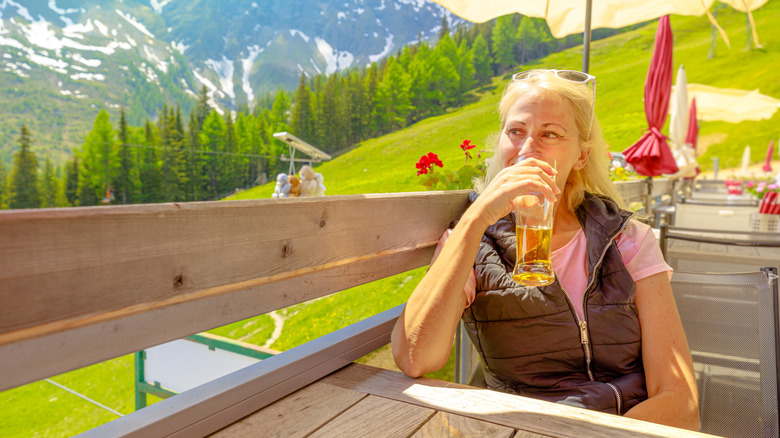Why Tourists Might Want To Avoid Alcohol For Their First Few Days In Switzerland
There are many common mistakes to avoid on a trip to Switzerland that are products of the country's multilingual nuance, mountainous geography, and abundance of social faux pas. As you're getting used to the pace and norms of the Swiss lifestyle, you might also start to feel lightheaded or fatigued. That's not just due to trying to keep up with Swiss efficiency, but, rather, it's a physiological consequence of the altitude. Much of Switzerland sits at higher elevations than most U.S. cities. Even if you're not hiking up the Alps, being in mountain towns like the under-the-radar, sleepy Swiss village of Gimmelwald can produce altitude sickness. And drinking alcohol while you're adjusting to the changes in elevation makes symptoms worse.
The average altitude in Switzerland is 4,429 feet above sea level, with many of the country's mountains reaching well over 10,000 feet. For someone coming from the U.S., where many states don't exceed Switzerland's average even at their highest points, that change in altitude is a whirlwind for your body. At higher levels, there's less oxygen in the atmosphere because of decreased air pressure. As a result, your breaths are delivering less oxygen to the blood than usual, so you might breathe faster and pump blood harder. This change can produce a feeling of dizziness, nausea, headache, tiredness, or trouble sleeping. Alcohol can produce similar effects and magnify those symptoms. Plus, since there's less moisture in the air at higher elevations, you're more likely to get dehydrated when drinking alcohol. According to Alcohol.org, it's best to wait two days to let your body adjust before drinking, and you should especially avoid drinking before bed.
Do higher altitudes in Switzerland make you more drunk?
Some people claim that alcohol makes you more drunk at higher elevations, but studies have proven this to be a myth. In one prominent example, a 1985 study by the Federal Aviation Administration (FAA) tested the interaction of alcohol and altitude by having 17 men perform tasks at low and high altitudes, both with and without alcohol across different sessions. Researchers found that alcohol and altitude both, separately, lowered performance, but adding altitude on top of alcohol didn't make the alcohol's potency any worse. Using a breathalyzer, they concluded that the blood alcohol levels were about the same at both altitudes. Interestingly, though, they did find that altitude alone diminishes your normal mental capacity.
So, while higher altitude doesn't make alcohol chemically stronger, it can have negative effects on your judgment and focus that are compounded by alcohol. Crucially, the FAA study points out how the combination of alcohol and altitude degrades your "margin of safety." When you drink alcohol, your brain is already less capable of coordination and concentration, but there's still some safety cushion left. Altitude further eats into that safety margin, which is particularly risky when you're hiking up winding and rugged mountain paths, skiing down alpine slopes, or just navigating around a foreign town safely. Though the altitude itself can be a natural risk factor, you can limit its impairment by not drinking, staying hydrated, and following advice for the best things to do when experiencing altitude sickness on a hike.

